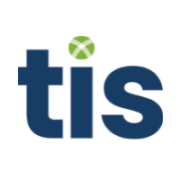Universwiftnet Paris – March 2018
| 30-04-2018 | François de Witte |
 On 13/3/2018, I attended the 15th Universwiftnet Paris event, a one-day conference day to discover the recent tendencies in payments, banking connectivity and the relationship between corporates and banks. There were over 1.000 participants, and this was a good opportunity to have an immersion in the latest tendencies in treasury. Down below, you will find some hot topics and takeaways,
On 13/3/2018, I attended the 15th Universwiftnet Paris event, a one-day conference day to discover the recent tendencies in payments, banking connectivity and the relationship between corporates and banks. There were over 1.000 participants, and this was a good opportunity to have an immersion in the latest tendencies in treasury. Down below, you will find some hot topics and takeaways,
KYC (Know Your Customer)
KYC remains high on the attention of banks. There is a new initiative of the KYC – SWIFT registry, which aims to provide an efficient, shared platform for managing and exchanging standardized Know Your Customer (KYC) data. SWIFT has worked with the world’s largest correspondent banks to define a set of data and documentation that addresses KYC requirements across multiple jurisdictions.
SWIFT takes on the task of validating the information and keeping it up to date. That means banks are relieved of this task, while remaining sure that their data is reliable and up to date. The KYC registry also offers a useful set of tools to simplify and enhance risk management procedures. This includes a KYC Advanced Notifications feature that can trigger alerts, if the profile of one of their counterparties changes.
Institutions can upload completely free documentation to the Registry and share it with the institutions you select. SWIFT validates the data rigorously, informs the counterparty if it is incomplete or needs updating, and alerts your correspondents whenever your data changes. The KYC Registry is currently only open for banks, but it this would be opened to corporates to corporates this year, enabling them to deposit documents there. This is welcomed development.
eBAM – management of the bank mandates
eBAM is the SWIFT initiative aiming at rationalizing the bank mandates. This provides standardized messages, which can be used between corporates and banks. BNP Paribas is already using this extensively, but other banks, like Sociét Générale, Citibank and Natixis are also joining the initiative. The further extension of eBAM to other banks would enable to rationalize an area, which remains a pain point for many corporates. One of the projects is to enable to sign digitally bank agreements.
Fraud & cybersecurity
Fraud & cybersecurity also remain high on the agenda. According to a study of Euler Hermes, 80 %, of the corporates have at least experience & fraud attempts, and 25 % over 10 fraud attempts. According to a study of the EU, 80 % of the European corporates have been victim of cyberattacks.
Corporates need to invest in the risk assessment, the browser & app protection, onboarding and password management. The challenge is to payments as frictionless as possible, in a context of increasing authentication cost.
It is important to embed this in processes, which should include whenever possible measures enabling to prevent:
- Internal fraud: through the secure import of the files and other internal fraud prevention measures (black and white list of beneficiaries, limits on the amounts, banks and countries, check on abnormal transactions, verification of the account of the beneficiaries, etc.)
- External fraud: through a secure digital signature (multifactor authentication using One time passwords, certificates, etc.) and a secure transfer of the payment files to the banks
PSD2, instant payments and open banking
We are moving to a paradigm whereby we need to combine:
- The real time of the transaction
- The request for user-friendly and frictionless payment initiation
- The controlled opening of the payments landscape to third parties through PSD2
- The protection of the PSU (Payment Service User) through PSD2 and GDPR
This will also create opportunities, both for the new players and the incumbent banks, who are prepared to develop an active open banking strategy. The retailers look at reducing the collecting costs of the card schemes and are looking at alternative more cost efficient collection methods. The SEPA Instant Payment Scheme could become in the future an interesting alternative.
New multibank solutions will come up. They will provide a more cost efficient technology using APIs. In a first stage, I expect that they will mainly extend to smaller corporates. Larger corporates might stick to the proven SWIFTNET or Host-to-Host solutions, due to the bank independency, the proven track record and the high integration with the existing processes.
There has been an interesting testimony of EDF, who is currently daily retrieving its bank statements through APIs. These are easier to implement, and have enabled a more efficient and quicker process. This new way of working also has a lower impact on the IT environment, identified as a bottleneck in the organization.
In fact, we are currently moving to a real time and digital treasury. This will require new profiles, such as IT developers and AI specialists for the operational tasks and the dash boarding.
 François de Witte – Founder & Senior Consultant at FDW Consult and Senior Expert – Product, Business development and sales manager at Isabel Group
François de Witte – Founder & Senior Consultant at FDW Consult and Senior Expert – Product, Business development and sales manager at Isabel Group
[button url=”https://www.treasuryxl.com/community/experts/francois-de-witte/” text=”View expert profile” size=”small” type=”primary” icon=”” external=”1″]
[separator type=”” size=”” icon=””]











